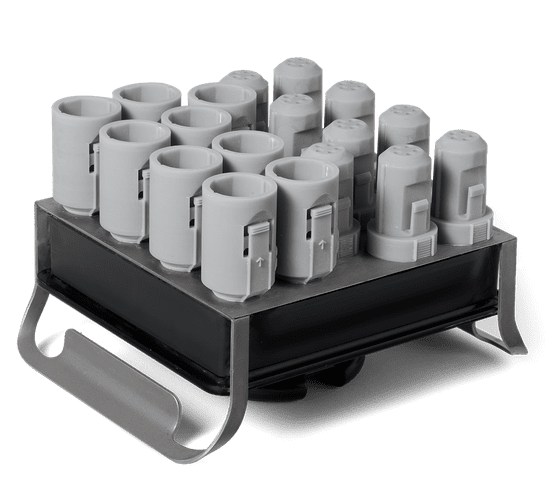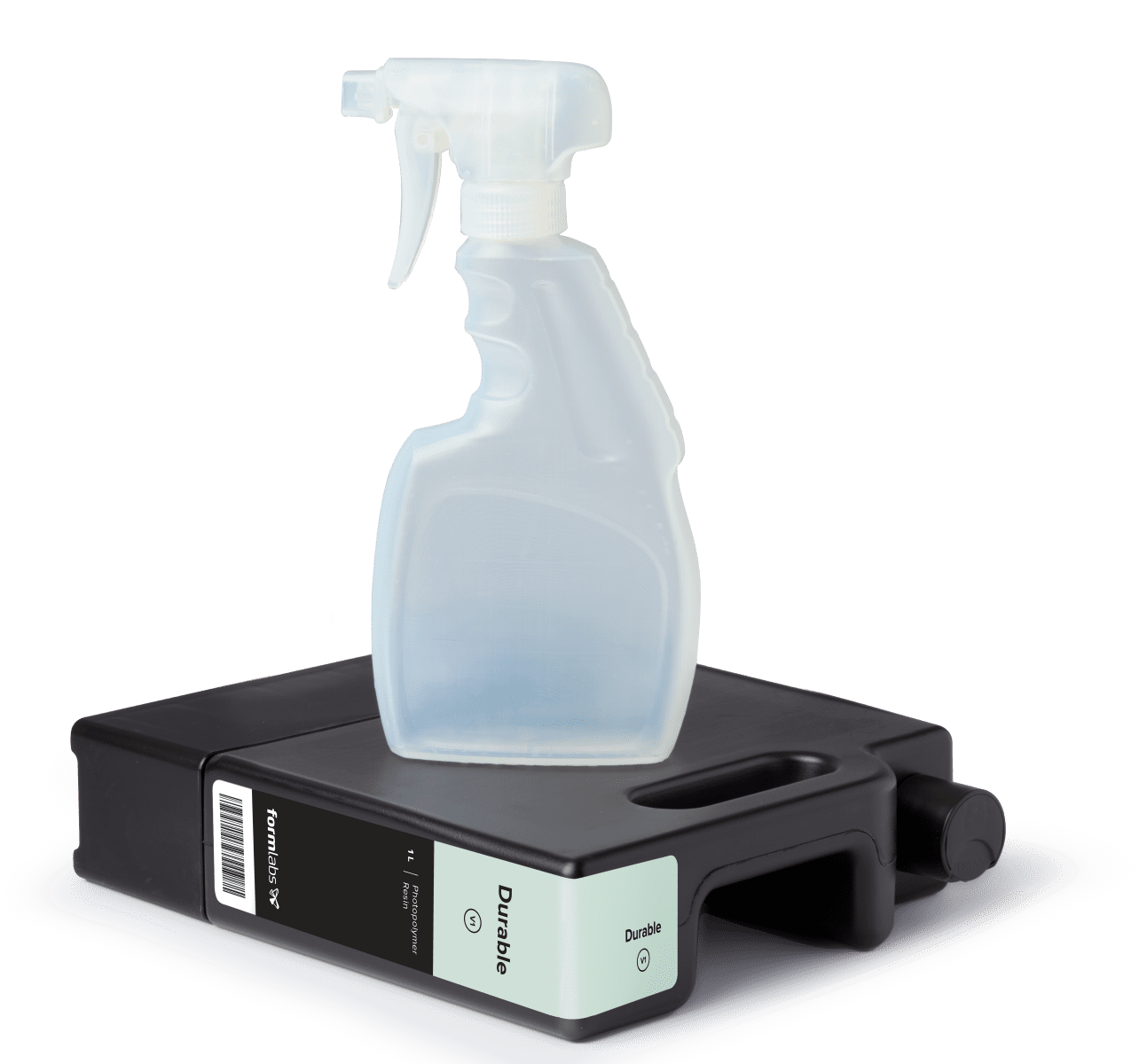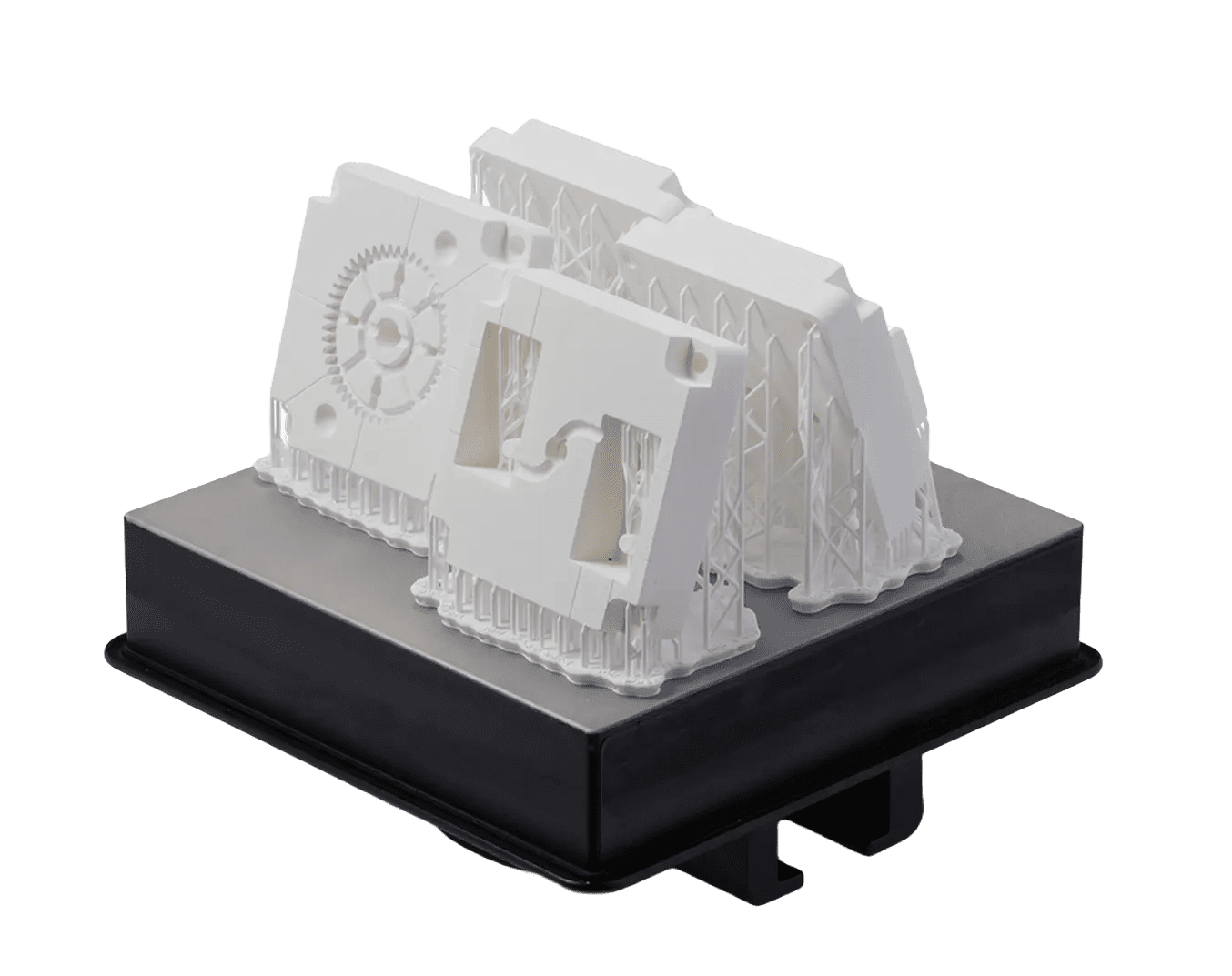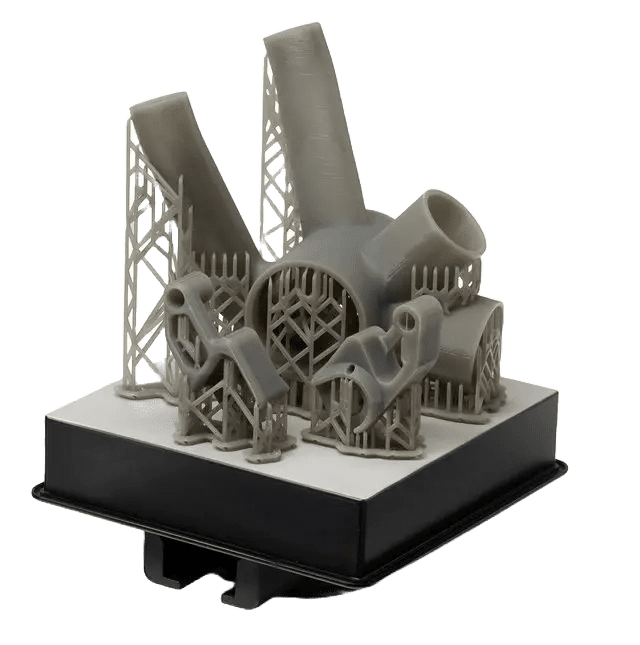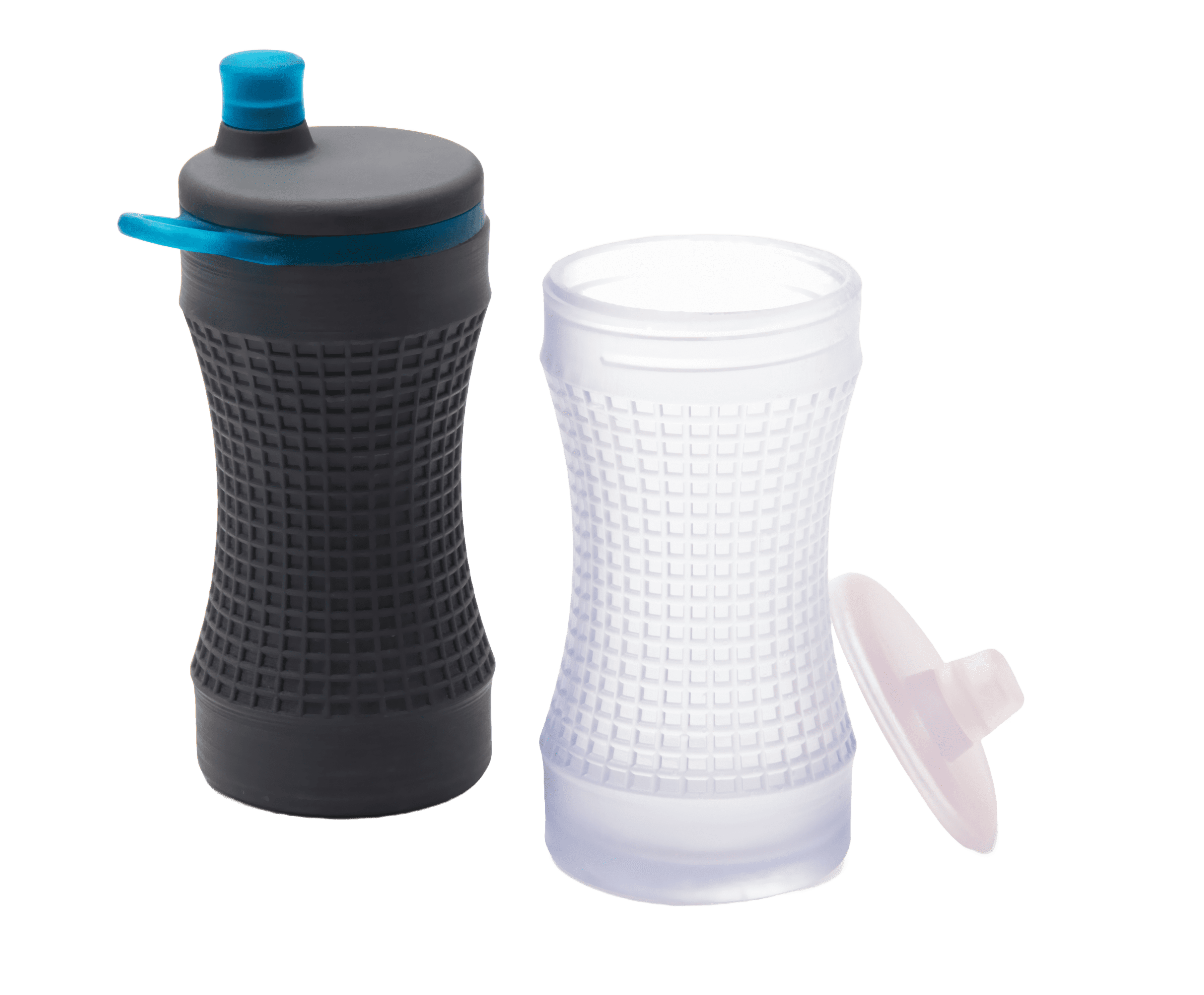
- Rapid Prototyping, Industry 4.0, SLA Materials
Formlabs® Flexible 80A
Formlabs® Flexible 80A
In Formlabs’ library of SLA materials, Flexible 80A resin is one of the most stiff soft-touch material with an 80A Shore durometer to simulate the flexibility of rubber or TPU. Parts 3D printed in Flexible 80A can withstand bending, flexing, and compression, even through repeated cycles. It is recommended for cushioning, damping, and shock absorption applications.
